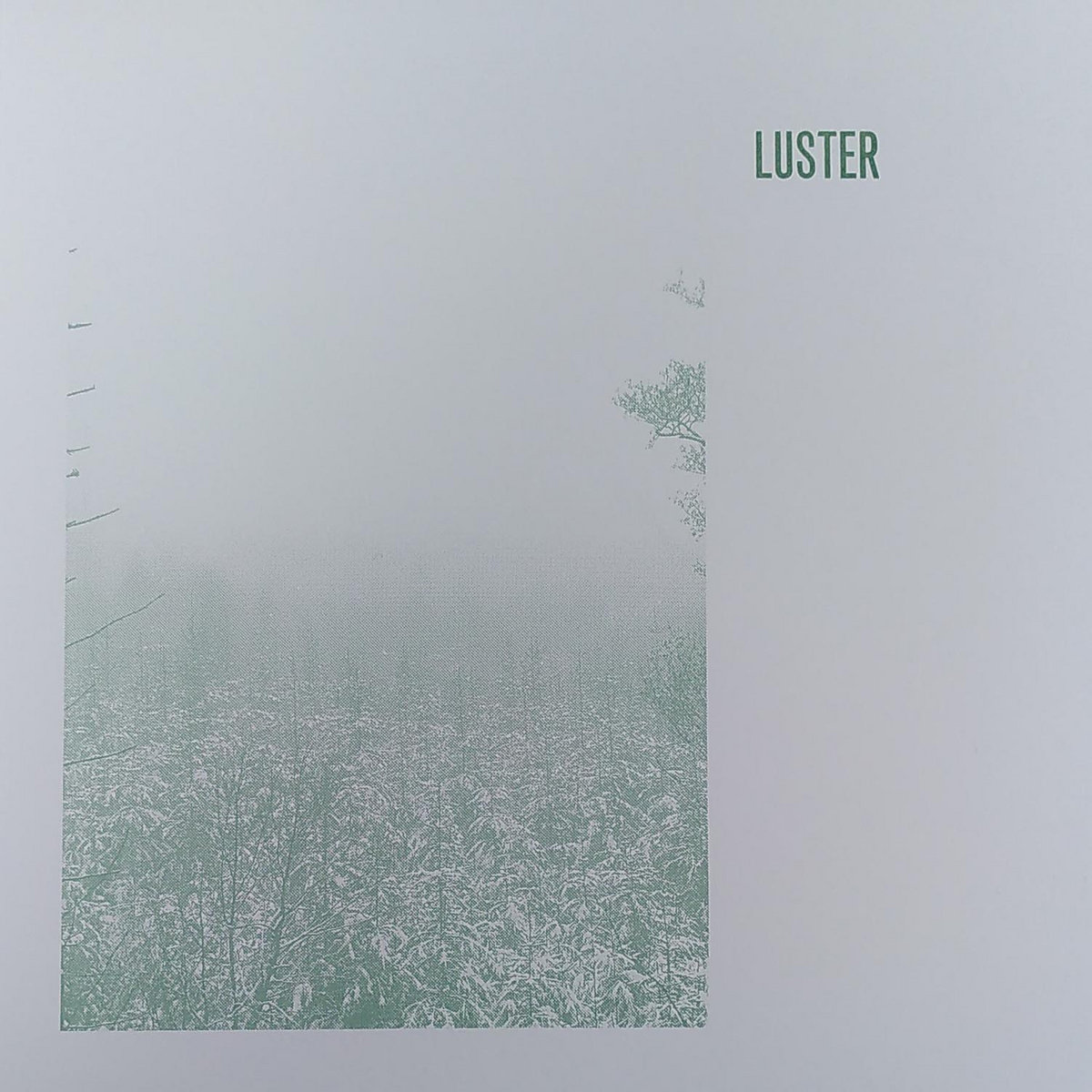 The wordless devotional singing and giddy organ accompaniment of Delphine Dora's Hymnes Apophatiques led me to explore the Morc catalog. Therein I developed an audio crush on Bingo Trappers (who were composing an ode to Mimi Parker a decade ago), discovered Lowered's heartbreaking Music For Empty Rooms, arrived better late than never to an appreciation of the drone folk of both Pifkin and Roxane Métayer, but firstly dived into the sweetly sinister debut album from Luster.
The wordless devotional singing and giddy organ accompaniment of Delphine Dora's Hymnes Apophatiques led me to explore the Morc catalog. Therein I developed an audio crush on Bingo Trappers (who were composing an ode to Mimi Parker a decade ago), discovered Lowered's heartbreaking Music For Empty Rooms, arrived better late than never to an appreciation of the drone folk of both Pifkin and Roxane Métayer, but firstly dived into the sweetly sinister debut album from Luster.
The group create uncluttered yet foreboding and mournful atmospheres from their distinctive singing and bass, cello, drums, flute, guitar, harmonium, and violin playing. I must confess that I often second guess the running order of album tracks and so it was, initially, with the eight songs on Luster, and in particular the opener "All is Dark Inside" with a funereal pace and shockingly simple rhymes ("serious" with "mysterious") which struck me as better moved to the final place, if not discarded altogether since the actual closing song "Out of Time" works so well.
Anyway, I am glad to be wrong because "All is Dark Inside" provides a solid thumping contrast to the rest of this album. This is vital, because as soon as track two, "L'idéal," kicks in—with harmonium swirling, bass line prominent yet delicate, and vocals balancing dread and purity—I cease caring about running orders or indeed about anything much at all. From that point I just bathe my head in the dreamy indie-tronic atmosphere.
It is cool that "Archeologist" starts with a catchy guitar loop and ethereal call and response vocals: imagine the folk tune "Scarborough Faye" as an alternate template for the snippet of Mike Oldfield's twinkling music which surfaces during The Exorcist. To then have a cello echo and answer phrases works superbly and proves beyond any doubt, if any were remaining, that the cello is the instrument closest to the human voice.
Similarly, the flute measures and guitar repetition on "Espace, éther" perfectly balance the eerie and hypnotic incantation with a sparse, deliberate, indietronic pulse similar to the slower paced parts of Land Observations' album The Grand Tour, ("Ode to Viennese Streets" for example). The standard stays high throughout Luster with "Crepéscle" and "Angst," resembling crystal clear spell chants heard from three fields away, when a fever dream has you unable to decipher your mother's words from three feet away. Plain old repetition is the key to "I Fall" managing, like the best archaic nursery rhymes, to sound both childlike and threatening. As aforementioned, "Out of Time" is a brilliant end track—maybe the standout—upping the passion, or blood, in the voices, perfectly paced, with mesmerized lyrics circling like buzzards.
Apparently Luster are supposed to have been creating a record for ten years, putting aside the members' other projects (the stark doom drone of Annelies Monseré, the stumbling lofi garage beats of Joe Speedboat, and—since I've never heard them—whatever Mote sounds like). I'm glad they got around to it eventually. Genre descriptors are not always helpful but terms such as chamber folk and hypnodrone are maybe apt, but there is something rather pleasing here which defies easy description and is all the better for it. I'm sure it's not easy to make intriguing music which also sounds clear and simple. Luster has achieved that, while combining a dark edge, skilled composition, and a deceptively light touch realism that illustrates well the spirit of Morc.
Read More

